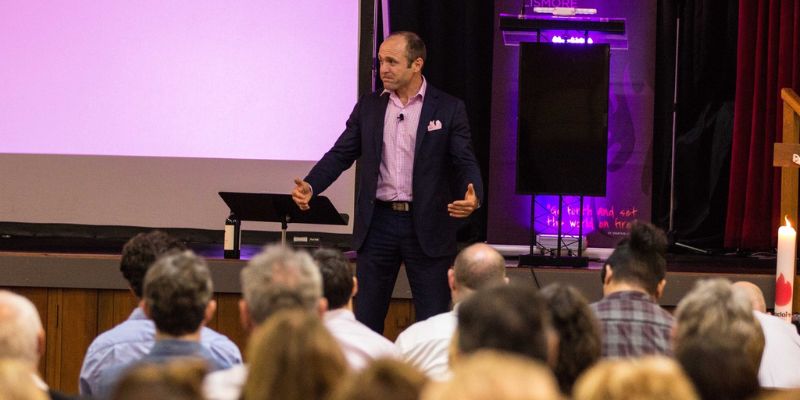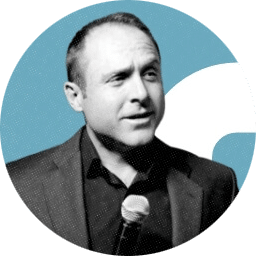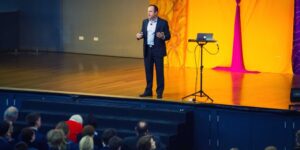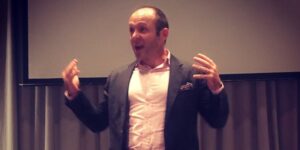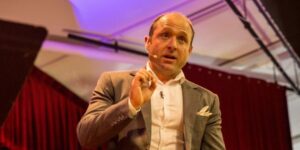As dedicated Catholic educators, we navigate challenging times with courage and hope, knowing that our mission is guided by the Lord Himself. In this episode, we delve into insights from John Piper’s book, “Don’t Waste Your Life,” exploring the relentless dedication to Christ’s mission. Amidst the complexities of modern education, we’re reminded of the profound purpose behind our work: evangelization and guiding young souls to the Father’s house. Join us as we unpack the significance of our vocation in this spiritual battleground and recommit to advancing the Gospel in our classrooms and communities. Stay tuned for empowering reflections and actionable wisdom.
Welcome Aboard
Hello there, my friend, Jonathan Doyle with you once again. Welcome aboard to the Catholic Teacher Daily Podcast. And I may only begin simply by thanking you for the amazing work that you do every single day in Catholic education. It is a challenging time to be a Catholic educator, principal leader, or bishop anywhere in the world. But friends have courage and hope; the Lord himself promised he would not leave us as orphans. He is with you every single day, in the smallest details. You have never been abandoned, and he is not done with you yet. There is so much ahead of you to contribute to the lives of young people. That’s why this podcast exists.
Focus on Purpose: Rediscovering the Core Mission
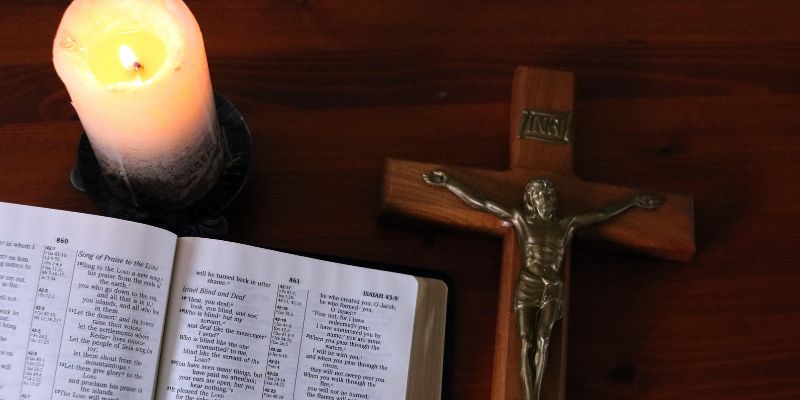
This week I’ve just finished reading a book by John Piper called “Don’t Waste Your Life.”. I really liked it, I was vaguely familiar with John Piper. If you haven’t heard of him, he is a very well known protestant speaker, thinker, and theologian. What I like about his work is that he is like, you know the saying, all hats, no cattle. Or here in Australia we say you have all the gear and no idea. John Piper is not that. He is somebody who is just relentlessly focused on one thing, which is a life radically dedicated to the mission of Christ.
From what I’m reading, I just finished it. He’s a little like me in the sense that he doesn’t have filters. It’s like there is one objective, and that is the glory of God and bringing people into relationship with God. I found that really encouraging, I think that’s one of the things we can lose, particularly Western Catholicism. We can do this. It can be, not saying it is for you, but it can be, tick a box exercise.
Well, you know, it’s the start of the school year. We better have a liturgy and put something into it. I’m not being cynical here or flippant, but at least in my country, this is a great tragedy of often paying lip service to the faith. But when it comes to really living it and preaching Christ crucified, we kind of think that’s maybe something other people do.
I think there’s obviously been this descent into a psychologizing and a social justice sizing of our Catholic faith. It is very easy to lose sight of this great commission to make disciples. Matthew 28: To make disciples.
Preparing for Pastoral Engagement: Context and Focus
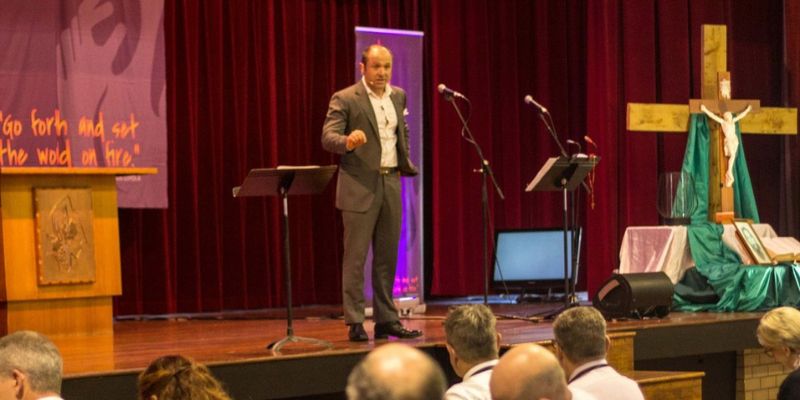
You know, next week I’m speaking for a very large Catholic archdiocese. I’m speaking to every teacher in that diocese. We’re doing a big event, and I’m speaking live to a large group, but then we’re going to be sending that live stream to all the other educators in that archdiocese in different locations.
It’s because we’re dealing with a topic that’s quite complex. It’s an issue of facing young people pastorally. I come at that with a whole bunch of research and data, psychology and theology, and a great deal of research.
But when I was preparing some of my notes yesterday, I thought I was writing about context. ’cause I always try with an audience to say, well, what is the context of what sort of, what is the shape of what we’re going to talk about? Where is this placed in our human experience? And what I’m doing is saying that before we get to any of the fancy psychology, pastoral theology, data statistics, or anything else we’re going to talk about, Christ’s desire for young people. We’re going to talk about redemption. I want to talk about the gospel.
Rediscovering the Gospel in Catholic Education
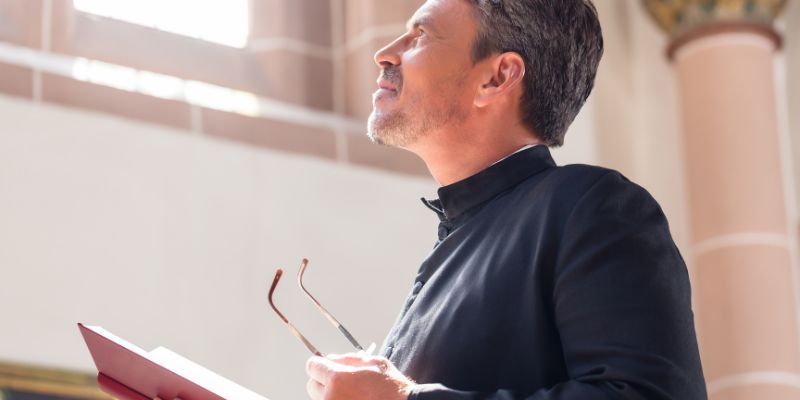
What is the point of being so fancy and looking exactly like the world around us? Yes. There is a place for all the data, all the statistics, all the research. You should be professional. But if we lose sight of what this is all for, what it is all for is evangelization. What these are all for, is helping young people get home to the house of the father. That’s what it’s all about. It’s. Everything must contribute to that aim. And if it doesn’t, then we’re losing track. Of the purpose. We end up being very self-referential; it’s all about us, and it’s all about, you know, just what we do and then having better systems.
I just don’t think that’s right. I think what we’re supposed to do is evangelize. Everything should serve that purpose. That’s why I liked this book. And that’s why I want to give you one simple quote from it today because we’re going to do one each day for the next three days. And then on Friday, I will do something else. Listen to this quote from John Piper here; he just says, the secular vocations – by secular, he just means the kind of people who are not priests, religious or pastors or ministers.
The Spiritual Battlefield of Catholic Education

I wouldn’t tend to use the word secular vocation when I’m talking about you, because I don’t think your vocation is secular in the sense that it is secular. It’s in the world. But it’s obviously going to be an incredibly omnipresent divine dimension. But he says this: “The secular vocations of Christians are a war zone.“
I have been saying this for decades. I’ve said it in so many different ways. The church fathers said it; the whole experience of the fathers of the desert and the mothers of the desert in the first century, in Palestine. The great sweep of Christian history and Christian tradition tell us this: that the greatest men and women always understood the Christian life and our work in the world was combat. It was a place where Satan was countermanding the orders of Christ and trying to claim souls.
I don’t care if everyone subscribes; I got to say this, like the Catholic school is a war zone. Why? Because it is a place where the gospel of Jesus Christ, we hope, is being presented. It’s a gospel of sin and redemption and God’s plan in history. And our limitations and frailties as humans and those concepts, limitations, and frailties there. The logical positivism is the idea that we can just kind of be good, that we’re intrinsically good, and that we’ve just got to act better and it’s all going to work out.
“The secular vocations of Christians are a war zone.“
John Piper Tweet
Understanding the Reality of Spiritual Warfare

There is a war zone here and he’s telling us; he says the Christian vocation, the secular vocation of Christians, is a war zone. I mean I almost said we don’t want to overthink or over dramatize it, but I think we’ve under dramatized it. I think we’ve under-dramatized it for so long. Especially in my country, friends, we’ve become so professionalized. We’re just going to professionalize our way into the future.
Now we need to go back. We need to go back to the gospel. We need to realize that prayer, intercession, and spiritual warfare are things in our Catholic schools that are very significant and that they really matter. You don’t have to get rid of everything else. It’s not like we’ve got to be just so absolutely religiously focused as such. You can have both. You can have professionalism; you can have skill sets, all sorts of formations in professional skills.
But underneath that, we’ve got to be reminded of that core purpose. And that is advancing the gospel of Jesus Christ. Helping young people become free from sin and error, growing in relationship with Jesus, and getting home to the house of the Father.
Satan's Opposition to Educators' Mission

As you go back into your work today or tomorrow, remember how much Satan hates you? I mean, please try and keep that in mind. Satan hates you. He wants to destroy you. He wants to separate you from Christ because he’s terrified that you might actually help a young person come to know the gospel. Through your teaching, through your witness, through, you know, just through who you are. You are a threat to Satan, and he hates you. He wants to see you fail, and he wants to see you depleted, destroyed, exhausted, and giving up. There is a real Satan; it’s in the Bible. Jesus talks about it. Jesus said that he saw Satan fall like lightning. He mentioned Satan multiple times. It’s real.
C.S. Lewis used to say that the devil wants one or two things. He either wants us to see him everywhere, or he wants us to see him nowhere. If we see him everywhere, we can lose common sense and sort of start to see every single human interaction as diabolical or otherwise. Or the other option is that we don’t see them at all. I think we have gone screaming off the cliff of not seeing him at all. We need to get that back. He wants to claim souls.
Theological Insight: Understanding Satan's Limitations
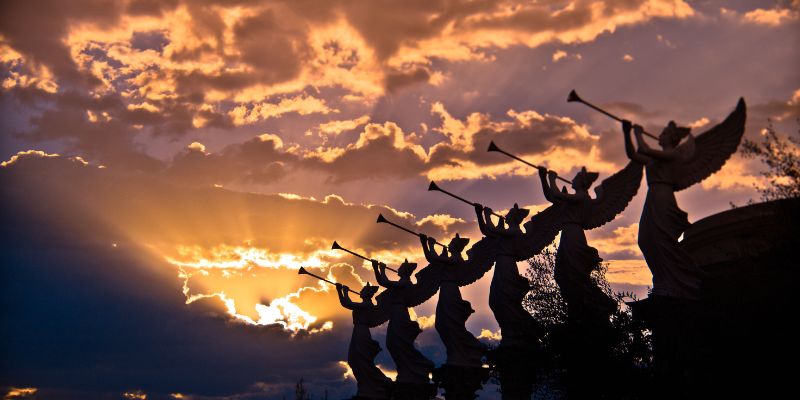
I’ve said this a thousand times in live seminars to teachers all over the world. You have to understand that theologically, Satan cannot create; he can only mutate. He does not have the power of creation, he cannot create souls to worship him, he cannot do it. And he cannot win any ultimate battle with Christ. It’s over.
We think sometimes that God is like, you know, somewhere in the cosmos, and he’s really stressed out because he’s worried that Satan might beat him in the future. That is not going to happen. Please understand. Please get this. Satan is not God’s rival. Okay. He’s not God’s rival.
If I could be indelicate, Satan got his butt handed to him by Michael in the battle in heaven. God didn’t even fight Satan in heaven. It was delegated to Michael, it was like, ‘Hey Michael, take care of this for me, please.’ And Michael and the other angels cast Satan out of heaven. You could make the case that maybe, you know, St. Michael is Satan’s rival. But please do not go around thinking that Satan is God’s. The only rival in the sense that he can only do one thing, the only game that Satan can play is to deprive God of souls. Because of free will. That’s the only game in town.
The High Stakes of Catholic Education

So what an incredible thing it is that you do every single day. You push back against that. You try to fight for souls, or at least my friend. I hope that you will begin to consider this. Because, as Frank said in 1953, if we don’t give young people the gospel, all other excellence’s will not do them much good. What did Jesus say? What does it profit someone to gain the entire world and lose their soul?
Does it matter if we get every single kid into elite universities? And they end up making huge amounts of money and doing incredibly important work. But they lose their eternal relationship with God, very high-stakes friends. But you know, don’t stress out because it’s not all on you. You’ve got the holy spirit. You’ve got the saints praying for you in heaven, you’ve got the sacraments, you’ve got prayer, you’ve got scripture, you’ve got other Christians supporting you, you have me supporting you in prayer.
So, friends, let’s finish. John Piper says the secular vocations of Christians are a war zone. Let’s see it for what it is.
Call To Connect
Please make sure you have subscribed to this podcast. You can find me on YouTube: @OneCatholicTeacher. But everything’s on the website. jonathandoyle.co. If you are on Instagram, my friend, grab your phone and just type in @jdoylespeaks one word.
I’m trying to post stuff there every single day, just to encourage you. So I hope that’s useful. If you want to book me to speak on consultancy projects, leadership, formation, and all of that stuff’s on the website.
God bless you. My friend, tune in tomorrow we’re going to go deeper into the empowering, impactful words of John Piper. God bless you. My name’s Jonathan Doyle. This has been the Catholic Teacher Daily Podcast, and you and I are going to talk again tomorrow.
